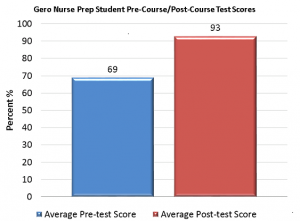Researchers say the Reducing Avoidable Facility Transfers (RAFT) model was shown to “substantially” decrease emergency department (ED) trips from three skilled nursing facilities. Moreover, the SNFs “also recorded a reduction in some acute health care utilization.” The model aims “to bring closer monitoring of a resident’s care plan and more expert clinical evaluations in order to prevent unnecessary hospitalizations for those in long term and post-acute care.”
Find out more at http://www.providermagazine.com/news/Pages/2019/0819/RAFT-Model-Cuts-Emergency-Department-Transfers-in-SNF-Population.aspx






 It’s that time of year again. Time to remember those who have served and recognize their caregivers through special activities and events to commemorate National Assisted Living Week.
It’s that time of year again. Time to remember those who have served and recognize their caregivers through special activities and events to commemorate National Assisted Living Week.